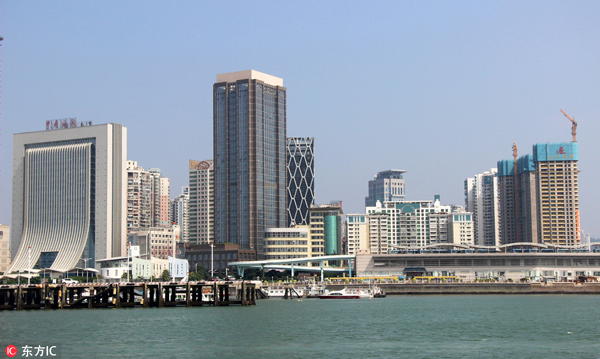 |
|
High-rise buildings in Xiamen, Southeast China's Fujian province, Sep 23, 2015. [Photo/IC] |
China will adopt property regulation and policies based on each city's different circumstances, according to China Securities Daily, which cited a document released by the Ministry of Housing and Urban-Rural Development (MOHURD) on its website on Tuesday.
In the document, titled The Implementing Measures for The Outline for Building a Government Ruled by Law (2015-2020), the MOHURD said it would "improve macro-regulation on the real estate market".
It mentioned the phrase "real estate" 10 times and was the MOHURD's first document to touch on property market regulation since the end of the annual "two sessions" in March.
The idea of improving macro-regulation in real estate and adopting different policies for different cities, as stated in the document, is consistent with the regulation principles followed this year, said Yan Yuejin, research director of the think tank center at the E-House China R&D Institute, a real estate research agency.
Cities with rapid home price rises or those anticipating price rises are likely to roll out restraint polices in the future, he said.
China's real estate market has experienced increased divergence, said Zhang Dawei, chief analyst at real estate agency Centaline Property.
Residential housing stocks in first and second tier cities have reduced, but stocks in commercial properties and residential houses elsewhere remain high, he said.
Along with divergence in market performance, regulation policies have started to differentiate further. Cities with fast rises in home prices, including some first and second-tier cities and their adjacent areas, have adopted restraint policies, such as tightening credit and imposing restrictions on home buyers.
Meanwhile, other local governments have begun adopting policies for trimming asset bubbles and reducing leverage in home loans, signaling a new round of tightened regulation, he added.
"Deleveraging policies will be a main trend of policy orientation for cities with rapid and excessive rises in housing prices, such as Xiamen, Hefei, Nanjing and Suzhou," he said.
Looking forward, real estate regulation policies will be different not only for different types of cities, but will vary in each and every city, he added.
